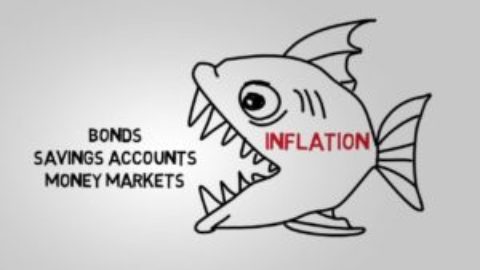Why Does Everybody Want My Old 401(k)?
By Steven Higgins, Financial Advisor, Branch Manager
 In many cases, the best savings opportunity for most investors is their company sponsored retirement plan. The 401(k), 457, and 403(b) are all various corporate equivalents to the IRA. Money goes in pre-tax, money grows tax free, and when the money comes out, it’s taxed as ordinary income. Contribution limits are much higher in corporate plans than in an IRA. For individuals over 50 years old, the maximum contribution will be $24,000 in 2016. In an IRA, that same individual would be limited to just $6,500. The best part: many companies match some of your contributions. Trust me, there are very few investments out there that double your money instantly. The kicker (with a few exceptions): you can’t get at your money as long as you are with the same company. So when you switch employers, get laid off, or retire on your own terms, you have options on how to handle your funds. You could take the whole thing in a cash payment and buy a yacht, but remember: you’ll pay your top tax bracket percentage and also a 10% penalty if you’re under 59 1/2. With few exceptions, in my opinion, the best option is to roll the entire plan into an IRA. You can do so tax free if handled correctly. When you properly initiate a “roll-over” assets are converted to cash and transferred to a custodian of your choice. It’s all of that newly freed up, investable cash that make you so coveted by advisors and brokers. We advisors love investing cash, it’s super fun. That puts investors in a precarious position. With very little exceptions you should absolutely roll the plan into an IRA, but it’s transitions like this where folks may get hurt badly. Most people have not made investment decisions like this and they are innocently naive. I picture all of those little baby sea turtles hatching and working mightily to get to the water before they get picked off by a bird. I just want to pick them up and get them to the water avoiding an aerial catastrophe. I know I can’t help everybody, but I can help a few.
In many cases, the best savings opportunity for most investors is their company sponsored retirement plan. The 401(k), 457, and 403(b) are all various corporate equivalents to the IRA. Money goes in pre-tax, money grows tax free, and when the money comes out, it’s taxed as ordinary income. Contribution limits are much higher in corporate plans than in an IRA. For individuals over 50 years old, the maximum contribution will be $24,000 in 2016. In an IRA, that same individual would be limited to just $6,500. The best part: many companies match some of your contributions. Trust me, there are very few investments out there that double your money instantly. The kicker (with a few exceptions): you can’t get at your money as long as you are with the same company. So when you switch employers, get laid off, or retire on your own terms, you have options on how to handle your funds. You could take the whole thing in a cash payment and buy a yacht, but remember: you’ll pay your top tax bracket percentage and also a 10% penalty if you’re under 59 1/2. With few exceptions, in my opinion, the best option is to roll the entire plan into an IRA. You can do so tax free if handled correctly. When you properly initiate a “roll-over” assets are converted to cash and transferred to a custodian of your choice. It’s all of that newly freed up, investable cash that make you so coveted by advisors and brokers. We advisors love investing cash, it’s super fun. That puts investors in a precarious position. With very little exceptions you should absolutely roll the plan into an IRA, but it’s transitions like this where folks may get hurt badly. Most people have not made investment decisions like this and they are innocently naive. I picture all of those little baby sea turtles hatching and working mightily to get to the water before they get picked off by a bird. I just want to pick them up and get them to the water avoiding an aerial catastrophe. I know I can’t help everybody, but I can help a few.
There is no perfect plan, but here is what not to do.
• Do not cash out. This is a tax nightmare. If you make $60,000 per year and are 55 years old and you decide to take your $250,000 401(k) in cash you will be shocked come April 15th. You would have $310,000 of taxable income and you would lose many of your deductions. (Remember when those politicians said only the rich will pay more taxes? Well at least for this year, that’s you. Congratulations.) Get ready for a tax bill over $100,000.
• Be careful when considering rolling over the assets into your new company 401(k) plan. The only reason I can think of to roll your 401(k) to your new plan is that you plan to borrow against it in the future. (Some plans allow this). Since using retirement assets to cover short term needs is generally a bad idea and I’m a financial advisor, I’m going to be blunt. Don’t! Investment options in 401(k) plans are frankly poor. In 2006, Congress passed the Pension Protection Act. Part of the act referencing retirement plans put the liability for poor investment performance on the company sponsoring the plan. Essentially, Congress said if you put sharp knives in the drawer and your employee cuts their finger, it’s the employer’s fault. The way companies could alleviate this risk was to offer age-based target date retirement portfolios. These target portfolios are pre-determined asset allocation models that tie to your expected retirement ages. Essentially, they are very expensive, very dull spoons. Rarely does a plan offer enough options to craft a well diversified portfolio. We’d advise you to get out while you can.
• Be careful when you leave the assets in your old company’s plan. You think dealing with HR was a pain when you worked there? It doesn’t get better when you leave. In addition, you will be limited to the investment options of your old plan.
• Do not fall for big guarantees and promises. All too often an investor’s 401(k) roll-over ends up in the hands of various insurance types who will gladly put all of that cash into a single annuity or other insurance related product. Insurance products like annuities are part of a strategy, not the entire strategy. They do however pay the high commissions to the agent who sells them, so work with a comprehensive advisor to develop a strategy.
The useful aspects of company sponsored plans are increased contributions and company matching or profit sharing. If neither of those apply anymore, consider rolling your plan over to an IRA.
* Not planning on leaving your job anytime soon? Some plans have provisions allowing you to roll the money out if you are 59 1/2 or older. Also, if your company is acquired by another company, you may be able to roll the assets out. These types of withdrawals may allow you to continue to contribute going forward.
* Be very careful about taking lump sum payments from pension accounts. Sometimes, this is a good idea but it could be the absolutely worst move you ever make. Please contact the advisors at HD Wealth Strategies for help.
GET A STRATEGY. Get help from a trusted advisor. If you are going through an employment transition, use the opportunity to positively impact your financial future. Contact us at HD Wealth Strategies.
The information contained in this blog does not purport to be a complete description of the securities, markets, or developments referred to in this material. Any opinions are those of Steven Higgins and not necessarily those of RJFS or Raymond James.








